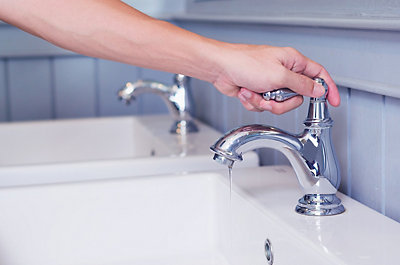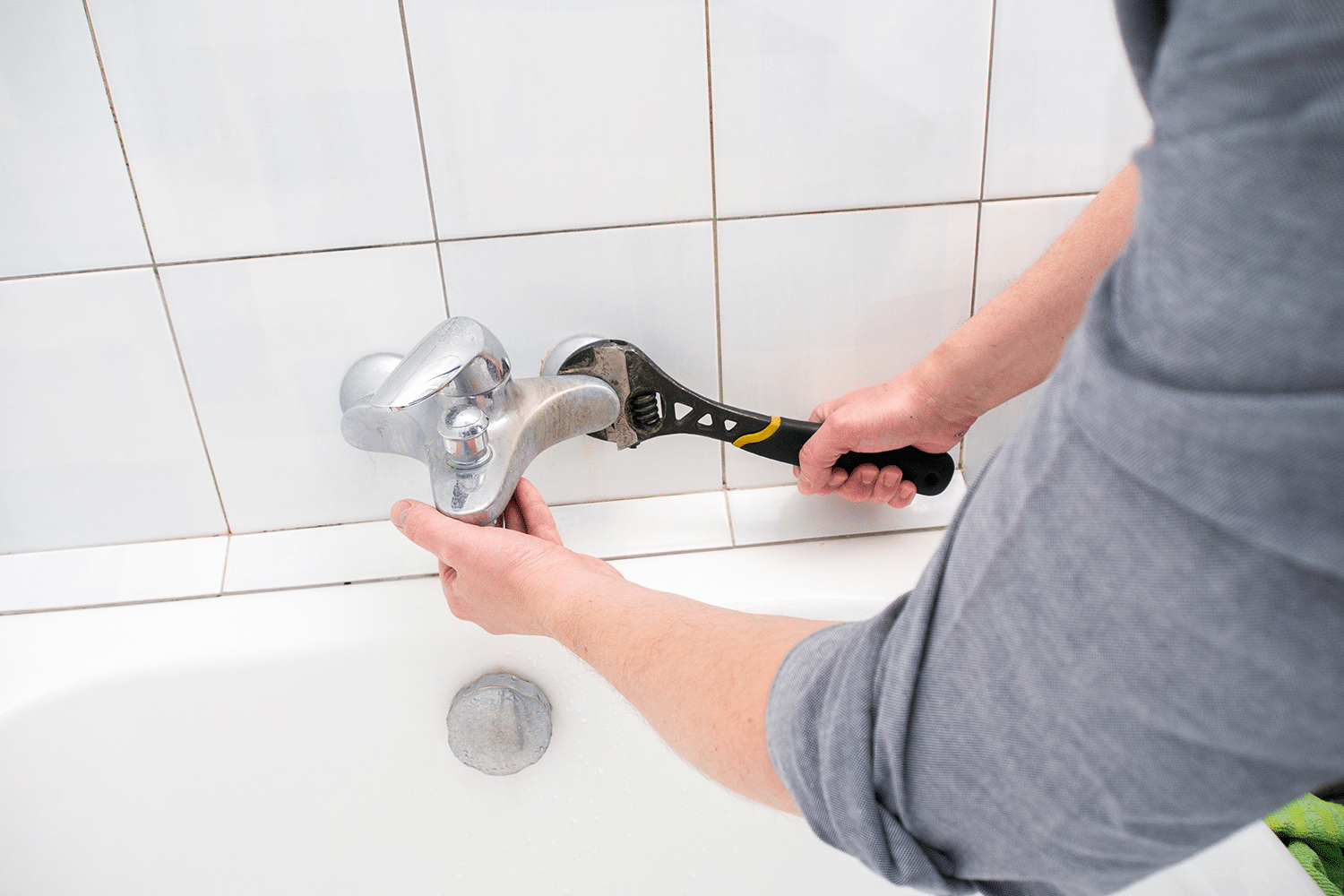Just how do you actually feel about Leaky Faucets: Why They Happen & What to Do About Them?

Leaking taps could seem like a minor hassle, however their influence surpasses simply the inconvenience of the noise. From drainage to sustaining unnecessary monetary expenses and health and wellness dangers, neglecting a leaking faucet can result in different consequences. In this article, we'll delve into why it's crucial to resolve this common household concern without delay and successfully.
Waste of Water
Environmental Influence
Leaking faucets add dramatically to water waste. According to the Environmental Protection Agency (EPA), a solitary faucet trickling at one drip per secondly can squander greater than 3,000 gallons of water annually. This not just stress water sources however additionally impacts ecosystems and wild animals dependent on them.
Step-by-Step Overview to Fixing a Dripping Faucet
Devices Required
Prior to attempting to deal with a dripping faucet, collect the necessary tools, consisting of a flexible wrench, screwdrivers, replacement parts (such as washing machines or cartridges), and plumber's tape.
Usual Faucet Issues and Their Solutions
Identify the kind of tap and the details issue causing the drip. Typical issues consist of damaged washing machines, rusty shutoff seats, or damaged O-rings. Refer to manufacturer instructions or online tutorials for step-by-step assistance on repair services.
Financial Expenses
Boosted Water Expenses
Beyond the environmental impact, dripping faucets can blow up water costs considerably. The collected waste in time translates right into greater utility expenses, which might have been prevented with timely fixings.
Prospective Home Damage
In addition, extended dripping can cause damage to components and surfaces bordering the faucet. Water buildup can cause discoloration, corrosion, and even architectural concerns if left ignored, causing additional fixing costs.
Wellness Concerns
Mold and Mold Growth
The continuous visibility of dampness from a dripping tap creates a suitable setting for mold and mildew growth. These fungis not just endanger interior air quality but likewise present wellness threats, particularly for individuals with breathing problems or allergic reactions.
Waterborne Illness
Stationary water in leaking taps can end up being a breeding place for germs and other microorganisms, enhancing the risk of waterborne diseases. Contaminants such as Legionella bacteria thrive in stationary water, possibly causing major illnesses when consumed or breathed in.
DIY vs. Professional Repair service
Advantages and disadvantages of DIY Fixing
While some might attempt to deal with a leaking tap themselves, DIY repairs include their own collection of challenges. Without correct knowledge and devices, DIY attempts can intensify the concern or result in insufficient repairs, extending the trouble.
Benefits of Employing a Specialist Plumber
Hiring an expert plumber makes certain that the underlying cause of the leaking tap is resolved effectively. Plumbings have the experience and devices to detect and fix tap concerns successfully, conserving time and minimizing the risk of further damage.
Environmental Responsibility
Individual Payment to Preservation
Taking duty for dealing with trickling taps straightens with more comprehensive initiatives toward water conservation and ecological sustainability. Every individual's actions jointly make a substantial effect on preserving precious sources.
Sustainable Living Practices
By prioritizing punctual repair services and adopting water-saving behaviors, people contribute to lasting living practices that profit both present and future generations.
Safety nets
Regular Upkeep Tips
To prevent trickling faucets, execute routine upkeep such as cleaning aerators, checking for leaks, and replacing damaged parts immediately. Additionally, think about mounting water-saving devices or updating to extra effective components.
Importance of Prompt Fixes
Resolving dripping faucets as soon as they're observed protects against further water wastage and prospective damage, eventually conserving both water and cash in the future.
Influence On Property Value
Perception of Well-Maintained Residential Property
Keeping a property in good condition, including resolving upkeep problems like leaking faucets, enhances its regarded worth and value among possible customers or occupants.
Influence on Resale Worth
Features with well-kept plumbing fixtures, including taps, command higher resale worths in the realty market. Addressing trickling faucets can add to a positive impact during property examinations and negotiations.
Verdict
Dealing with a leaking tap goes beyond simple convenience; it's a necessary step towards conserving water, decreasing economic costs, and protecting health and wellness and property. Whether with do it yourself fixings or specialist assistance, taking action to repair leaking taps is a little yet impactful means to advertise liable stewardship of sources and add to a much healthier, extra lasting future.
How to Fix a Leaky Faucet: Step-by-Step Repair Guide
A leaky faucet may seem like a simple annoyance, but if it's not fixed promptly, that leak could cost hundreds to potentially thousands. From water damage to mold, mildew, and high water bills, even a tiny leak can be catastrophic if left unattended. Damage like this can even affect the overall value of your home, so it's important to take the right approach for leaky faucet repair. You may need the help of a plumber in some cases, but we've got a few tips you can try on how to fix a leaky faucet before calling the pros.
Four Faucet Types
When you're learning how to fix a leaky faucet, the first step is knowing what kind of faucet you're working with! There are four common types.
Cartridge Faucets
Cartridge faucets come in one- or two-handled varieties. In one-handled cartridge faucets, hot and cold water combines in a single cartridge. In the two-handled versions, hot and cold water are controlled separately and mixed in the faucet.
Ball Faucets
Ball faucets have a single lever you push up and down to adjust the pressure and rotate to change the temperature. A slotted metal ball controls the amount of water allowed into the spout.
Compression Washer Faucets
They're the oldest type of faucet, but they're still used in many homes — especially older ones. Compression faucets have two separate handles that, when turned, raise or lower the washer that seals a water valve. This valve stops water from flowing through the faucet when it is turned off.
Disc Faucets
Disc faucets rarely need to be repaired due to their maintenance-free design. The water flow is controlled by two discs — the upper one raises and lowers against a fixed lower disc, creating a watertight seal. If your disc faucet starts leaking, you may need to replace the seals or clean residue buildup from the inlets.
Fixing a Leaky Faucet
Step 1: Turn Off the Water
Whether you're learning how to fix a leaky bathtub faucet or how to fix a leaky kitchen faucet, always turn off the water supply to your working area when you're fixing a leak. The last thing you want is a flood added to your list of things to fix.
Look for the shutoff valves below your sink or around the tub and turn them clockwise to stop the water flow. If your faucet doesn't have shutoff valves, you may need to turn off the water for the whole house. Check to make sure it's off by turning the faucet on. If nothing comes out, you're ready to start the repair.
Step 2: Take Apart the Faucet
How you disassemble your faucet depends on the type of fixture you have. You can use a flathead screwdriver to remove the caps on top of the handle or handles for cartridge and compression faucets. Inside, you should see handle screws. Unscrew these with a screwdriver to remove the handle.
Disc- and ball-style faucets will typically have an inlet screw near the handle, and removing that will reveal the interior of the faucet.
Detach the Valve Stem
For cartridge- and compression-style faucets, you'll see the inner valve stem or cartridge once you remove the faucet handles. If you have a compression faucet, unscrew the brass valve stem. If you have a cartridge faucet, pull out the cartridge. If your cartridge has been in place for a while, it may require some tools or extra force to remove it due to mineral deposits.
Examine and Replace Parts
Once you've removed the parts, check them out to confirm what needs to be replaced. You may see corroded rubber washers, O-rings, stems, or cartridges. On a ball-style faucet, check the seats and springs for damage.
If you need to repair a leaky disc faucet, check the inlet and seals on the lower disc.
Once you determine what parts must be replaced, visit your local hardware store. Bring the damaged parts with you to ensure you can purchase the correct components to replace them.
Clean Valves and Faucet Cavity
If you've removed a stem or cartridge, you may notice mineral buildup in the faucet's threads. Use white vinegar to clean the valve seat by soaking it for a few minutes, then scrub it away with a soft toothbrush and rinse with warm water. You can also clean the interior of the faucet in the same way.
Reassemble the Faucet
Once your faucet is cleaned and the required parts have been replaced, it's time to reassemble it. Put the pieces back together and slowly turn the water supply back on. Doing this slowly is crucial because too much initial water pressure can damage the new hardware you've just installed.
https://homewarranty.firstam.com/blog/how-to-fix-leaky-faucet

Hopefully you enjoyed reading our piece on Should I Repair or Replace a Leaky Faucet?. Thanks a lot for taking a few minutes to read through our post. In case you liked our blog posting if you please make sure you remember to pass it around. I recognize the value of reading our article about .